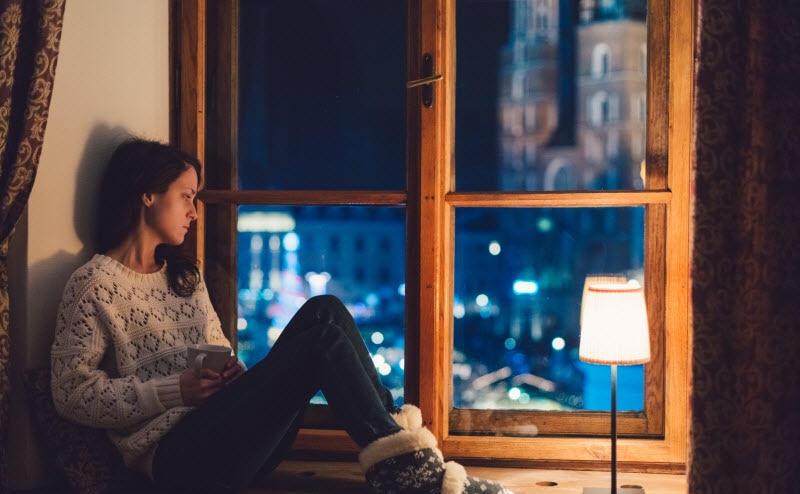Temperatures are dipping, and winter is getting into full swing. Colder nights might seem tailored-made for deep, restful sleep.
But for many people, winter presents challenges that can make it more difficult to get adequate shut-eye. Such fitful, restless sleep can deprive the body of the benefits of nightly rest, says Mary Helen Rogers, spokesperson for the Better Sleep Council.
“The rejuvenating benefits of sleep come in the deep, slow-wave sleep cycle that is only reached during longer periods of sleep,” she says.
November is National Sleep Comfort Month. As the celebration winds down, we look at five ways winter can hamper your sleep – and tips for overcoming those obstacles.
1. A warm house puts sleep in the deep freeze
As you crank the thermostat to make your house warm and snuggly, you might be doing “more harm than good,” Rogers says.
“The ideal sleeping environment is cool and dark,” she says.
Rogers recommends keeping your bedroom at a temperature of between 65 and 67 degrees Fahrenheit.
2. Shorter days can make for long, restless nights
The shorter days of winter can disrupt natural sleep patterns. As it gets dark earlier in the evening, we may be tempted to turn in prematurely.
“This is a mistake,” Rogers says. “We should stick to our bedtime schedule – even on the weekends.”
A consistent bedtime regimen helps your body to more efficiently transition from sleeping to waking.
To help you maintain such a schedule, Rogers recommends setting your alarm for two times during the day – the time you plan to go to bed and the time you plan to sleep.
“We need to make sure that we listen to our bodies and don’t sleep too much, or too little,” Rogers says.
3. Holiday stress can disrupt rest
While the winter holidays are a joyous time, they also invite stress. That emotional turmoil keep you from sleeping well, which can weaken your immune system, among other negative effects.
Sleep “even helps you have better control of your emotions,” Rogers says. So, if you are feeling stressed, try to relax. Rogers suggests:
- Planning a “wind down” time at the end of the day that might include light yoga, warm chamomile tea, a bath or lavender pillow spray
- Investing in new pajamas, sheets and pillows. “Create a sleep environment that is welcoming, and a place you can relax,’ she says.
4. A nap can zap hopes of deep sleep
It can be tempting to indulge in a nap on a cold winter day. While short naps usually are OK, longer napping – or simply napping too often -- can make it more difficult to sleep at night, Rogers says.
If the cold, cloudy days of winter make you sluggish, avoid the temptation to rest. Instead, get up and get moving.
“Take a walk outside in the fresh air, get some sunlight,” Rogers says. “See if that doesn’t help you perk up a bit.”
Such activity has the added benefit of helping you expend energy, so you are ready to sleep when bedtime rolls around, she adds.
5. Happy stomach, troubled sleep
Winter is the season to indulge in rich “comfort foods.” But too much snacking can disrupt your sleep.
The Cleveland Clinic warns that certain types of foods and beverages – such as sugary cereals, coffee and other caffeinated beverages, and alcohol – are notorious for stimulating the body and keeping you awake.
Rogers urges you not to eat anything too close to bedtime this winter. And when you snack, try to choose foods that will not disrupt sleep.
For example, pumpkin seeds contain tryptophan and magnesium, which can boost serotonin levels that lower stress and enhance sleep, she says.




